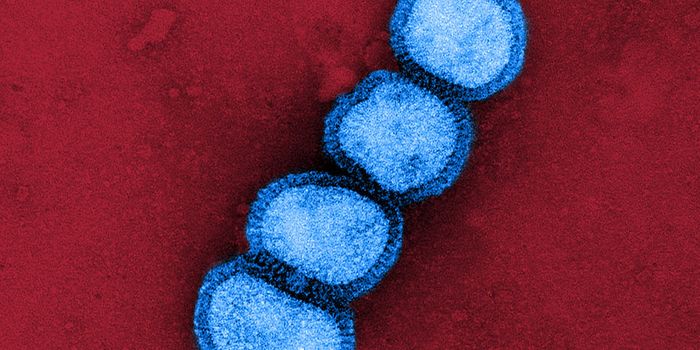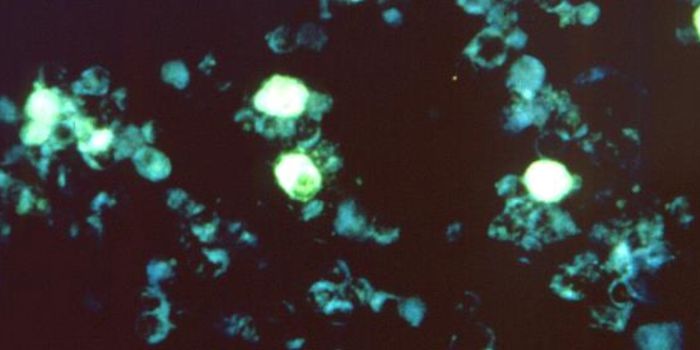The curious case of PANDAS
Ever heard of PANDAS? No, not the bumbling, black and white bears. PANDAS stands for pediatric autoimmune neuropsychiatric disorders associated with streptococcal infections.
Once considered rather controversial, PANDAS seems to be gaining traction as a bona fide clinical diagnosis. The disorder is characterized by the sudden onset of intense anxiety and obsessive-compulsive behaviors following a streptococcal infection - usually strep throat.
Image: Textbook of Bacteriology
The basic hypothesis is that the immune system produces antibodies against Streptococcus pyogenes, also known as group A beta-hemolytic Streptococcus (GABHS), and these antibodies cross-react with the brain, specifically with the basal ganglia (the part of the brain that controls movement and behavior).
This misunderstanding, if you will, probably occurs because of molecular mimicry on the part of GABHS. These bacteria are particularly good at camouflaging themselves with proteins that look like host proteins. That way, the host’s immune system won’t “see” the bacteria. When the immune system makes antibodies specific to these camouflage proteins, those antibodies also react with the mimicked host proteins. This is what happens with rheumatic fever - antigens on the bacteria resemble antigens in the heart, causing the immune system to attack the heart.
According to the National Institute of Mental Health, there are 5 diagnostic criteria for PANDAS:
- Presence of obsessive-compulsive and/or a tic disorder
- Pediatric onset
- Acute onset of symptoms that are episodic in severity
- Association with GABHS infection, and
- Association with neurologic abnormalities, such as physical hyperactivity and jerky movements that are not under the patient’s control
Other symptoms of PANDAS include anorexia-like behaviors, violent outbursts, seizures, and even respiratory failure that can result in death.
PANDAS is tricky to diagnose because it is considered an autoimmune disorder caused by an infectious organism. This means that “proving” the PANDAS hypothesis requires meeting both Koch’s postulates and the Witebsky criteria.
One major problem with making a clear connection between GABHS (eg, strep throat) and neuropsychiatric issues is the fact that, at the time that PANDAS symptoms occur, it’s possible that very few bacteria are present in the throat, and they may not be detected by culture. Complicating matters more, GABHS can survive inside of macrophages, making it possible for the bacteria to set up a chronic infection in the throat that goes undetected.
Despite these complications, there is a good deal of research being done on PANDAS.
With respect to animal studies, researchers at Columbia University investigated whether antibodies to group A Streptococcus reacted with mouse brain tissue. When they applied sera from immunized mice to brain tissue, antibodies localized to different areas of the brain, including the deep cerebellar nuclei, the thalamus, and globus pallidus. This study also reported behavioral changes in the immunized mice suggestive of a neuropsychiatric disorder.
In 2012, a report described a rat model of PANDAS in which the animals were immunized with group A streptococcal antigens. After just 2 immunizations, the rats had trouble holding food pellets and traversing a narrow beam.
A final study worth mentioning was conducted in 2014 at Tel Aviv University. Researchers further investigated the connection between anti-Streptococcus antibodies and the neuropsychiatric issues associated with PANDAS. They transferred antibodies from rats that had been exposed to group A Streptococcus to naïve rats. These antibodies altered the behavior of the naïve rats and localized to dopamine receptors and serotonin transporters in the brain.
There have also been a handful of human studies and clinical trials conducted.
A few of these have looked for correlations between neuropsychiatric symptoms and Streptococcus infection. One study from 2005 in the Seattle area matched 144 patients with tic disorders to 609 controls. The researchers found a significant association between previous Streptococcus infection and the risk for developing Tourette syndrome (a tic disorder). They also found that having had multiple Streptococcus infections in the previous 12 months increased the risk for developing Tourette syndrome.
Again in 2005, researchers conducted a double-blind, randomized controlled trial to test whether antibiotics could treat the neurologic symptoms of PANDAS. Here, 23 patients with PANDAS received either penicillin or azithromycin over 12 months. This study found a 96% decrease in infections and a 64% decrease in neuropsychiatric symptoms. Of course, this was a very small study, and it lacked a placebo control group.
While the majority of patients with PANDAS undergo standard treatments for obsessive-compulsive disorders, at least 1 study has tested 2 experimental treatments - plasma exchange and intravenous immunoglobulin (IVIG). Ten subjects received plasma exchange, 9 received IVIG, and 10 received a placebo. After 1 month, both experimental groups showed improvement in their PANDAS symptoms, and these improvements remained 1 year later.
While PANDAS remains difficult to diagnose and treat (and undoubtedly controversial for some), it's hopeful to see that at least some research is being done on the subject.
Sources: PANDAS Network, Neuropsychopharmacology, The Journal of Neuroscience, Pediatrics, Biological Psychiatry, The Lancet, Wikipedia









